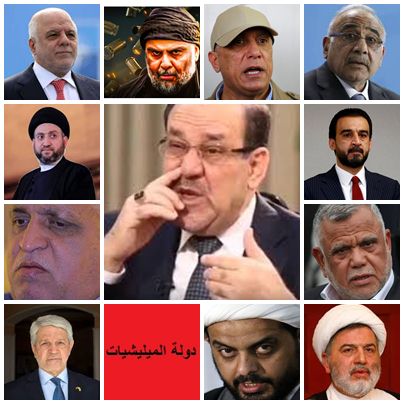Aristotle was once asked: “Who creates tyrants?” He immediately replied, “The weakness of the oppressed.” This statement highlights a harsh truth: the persistence of injustice in societies is often due to the silence and inaction of the people who endure it. When citizens remain passive in the face of oppression—whether it’s the suppression of freedom, the erosion of justice, or inequality—tyrants thrive. The rulers grow stronger, using their power to suppress dissent, while the people become easy prey, allowing the law to be manipulated to serve the desires of the elite, turning leaders into authoritarian figures.
In Iraq, the traditional culture has played a significant role in reinforcing the rule of tyrants. For much of the country’s history, the alliance between corrupt political regimes and the religious establishment has enabled politicians and rulers to consolidate their control. Movements for freedom or resistance were quickly crushed, often labeled as heretical or treasonous, with dissenters branded as infidels or apostates. This alliance has long served the interests of rulers, who utilized religious authorities to legitimize their power, often creating fatwas that reinforced their rule and tyranny.
Religion, ignorance, and poverty are some of the most potent tools used by oppressive regimes to control and humiliate their citizens. Fear tactics, excommunication, and indoctrination are used to suppress any progressive movement. Over time, attempts to challenge the system have been easily defeated by exploiting these tools—religion, betrayal, ignorance, and poverty.
Sadly, many Iraqis have come to accept subjugation, with entire segments of the population converting themselves and their families into servitude to the political and religious elites. The tragedy of modern-day slavery in Iraq is that many citizens believe they are free. In reality, the people are not only physically enslaved, but mentally as well. They have become instruments of corrupt religious authorities, unknowingly supporting the very system that oppresses them.
The blind obedience to religious leaders, especially to the authorities in Najaf and Qom, has been ingrained in many Iraqis. These leaders are not just spiritual guides but have become political idols, with entire communities deferring to their decisions in hopes of divine favor. The result is a society where political decisions, appointments, and even elections are guided by the whims of religious authorities. Politicians like Nouri al-Maliki, Ammar al-Hakim, and others, who have served as Iraq’s rulers, were largely appointed with the blessing of these religious authorities. These figures, in turn, perpetuate corruption and violence under the guise of religious legitimacy.
Today, Iraq stands as a broken state, grappling with widespread corruption, terrorism, and a collapse in essential services. The country’s place in the global community has become increasingly irrelevant, and deep down, it’s clear: the Iraqi people have contributed to their own suffering. They’ve accepted humiliation, disgrace, and the destruction of their country’s future. The people, in their apathy or misplaced loyalty, have allowed thieves to rise to power, making giants out of political dwarfs, and elevating ignorance to the status of leadership.
The real tragedy lies in the fact that the people have, in a sense, become complicit in the making of their tyrants. They have elected corrupt politicians and empowered religious authorities that have led the country into despair. Today, they blame the very idols they created, forgetting that they were active participants in the process. The political class, enriched by corruption, continues to live in luxury, spending vast amounts of money on personal indulgences while demanding austerity from the people.
For Iraq to ever break free from its cycle of tyranny, the people must first liberate themselves from the superstitions and outdated cultures that uphold the authority of the religious institutions in Najaf and Qom. They must stop glorifying the very figures who have enslaved their minds and lives. Until then, the answer to the question “Who creates tyrants?” remains painfully clear: It is the ignorant, the passive, and those who allow themselves to be ruled by superstition, sectarianism, and blind obedience. These are the ones who perpetuate the cycle of tyranny.
